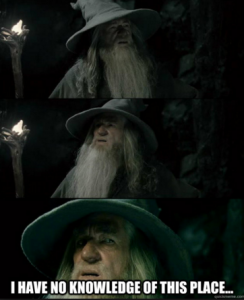Motive: The Key to Writing Stories Readers Can’t Put Down

Motive is a key ingredient that differentiates stories that sizzle versus stories that fizzle, namely because we all want to know ‘WHY?’.
Why does a character want this or that? What drives them? Who would do such a thing? How did a character become a certain way? Can a character change?
A character’s central motive is the key that unlocks our interest. It’s less about what a character is doing or not doing and more about WHY. If we (the audience) don’t understand or can’t relate to a character’s motivation?
We can’t care.
This is why ‘white hat’ and ‘black hat’ characters are so dull. Humans can’t authentically connect to ‘wholly noble’ or ‘wholly evil’ characters who are for good simply because it’s ‘right’ or or evil ‘just because.’
Regardless what any character wants to achieve—or conversely, wants to avoid at all cost—we (readers) must understand and be able to empathize the underlying motive driving their choices.
Fiction, at its most fundamental level is always cause and effect. We can’t have effects without causes and if we do? Readers will call FOUL.
Don’t believe me? Read my blog about the train wreck commonly known as Game of Thrones‘ Season Eight.
Some Sizzle While Others Fizzle
What makes one book a staple in our library but renders others utterly forgettable? Some books, I can’t recall if I even read them.
In fact, bizarrely enough, sometimes I’ll look at my Kindle/Audible menus and my devices will claim I’ve read or listened the book(s) to completion but…

Other books I read over and over. I still revisit A Girl on the Train, Gone Girl, The Luckiest Girl Alive, Dune, What Alice Forgot, Fahrenheit 451, and Breakfast at Tiffany’s, and others because I learn (and see) something new with every pass.
This said, we’ve been talking a lot lately about character/character creation. So, I returned to my favorite books and did some reverse engineering in hopes I might better understand what made the critical difference.
What’s the Character’s Paradigm?

This is to say, what is her reality? Her framework? How does the character define herself? Does he define himself via internal or external factors or both? How accurate is his self-image?
What forms the character’s center? How does the character define his or her worth? What’s the character’s central motive?
We must ask and answer all these questions because, without those answers, a background sheet is nothing more than facts devoid of context. And, to create a dimensional character, context is king.
Paradigms offer context.
For instance, Dr. Gregory House (image above) saves lives. He solves unsolvable cases for patients who, without his help, would be dead. But Dr. House IS Dr. House because of his driving motive.
Patients are puzzles not people.
Same end result—the patient is cured—very different motive. Dr. House is no soft touch with a tender spot for the suffering. In fact, he’s borderline sociopathic which is why his character was so complex.
Bad Decisions Make Excellent Stories
Great fiction is about problems. It is about people with problems. Stories are about a wholly wrong motives that eventually lead to deeper understanding, personal growth, and ultimately better motives.
And the more messed up our characters are? The more we have to work with 



